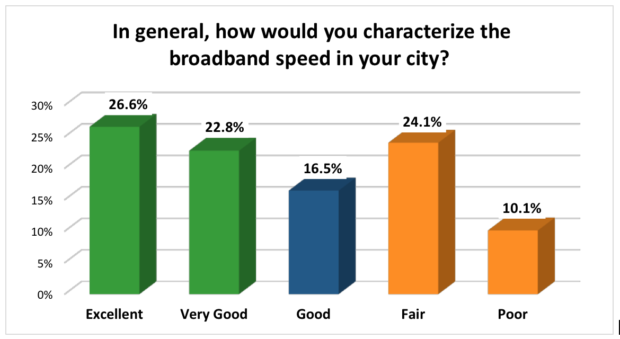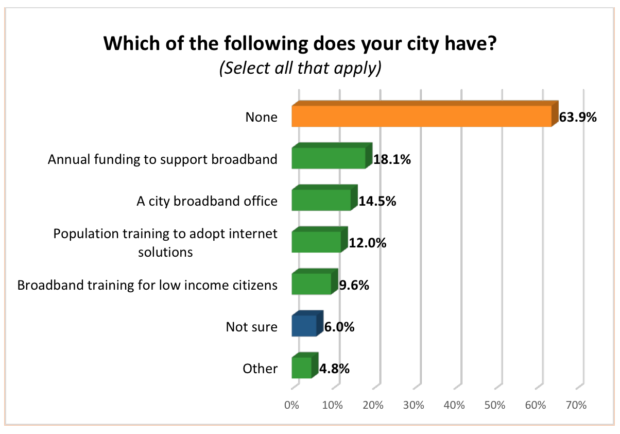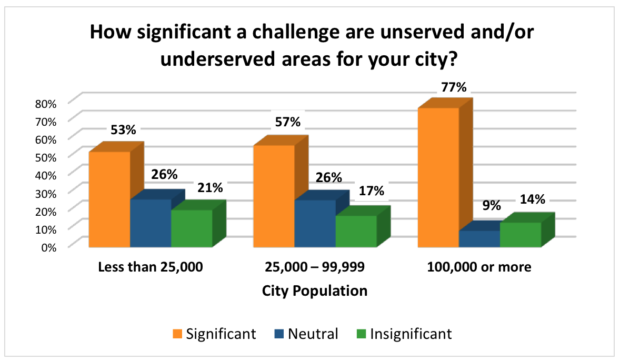How are American cities addressing broadband challenges?
Successful cities continually strive to offer quality of life and economic opportunities to compete and attract people and businesses. Like clean water, good roads, and reliable electricity, high-speed internet (broadband) access is an essential service for local governments, households, businesses, and organizations. Cities that aspire to ensure affordable and ubiquitous broadband, along with smart city services, enhance quality of life and create an environment people will choose to live and work.
This research study provides key insights on how cities across the United States are addressing gaps, barriers, and opportunities for broadband. The study’s findings and lessons learned can help cities that have already taken steps toward broadband challenges as well as those cities considering upgrading their broadband. Topics to be covered include:
- Network Drivers and Planning
- Network Financing
- Network Use and Value
- Lessons Learned
Download this free report today! Below are some select findings from the report.
Enter Your Name and Email to Download the SNG’s Report, The Aspirational City

Research Bytes
Just a few findings from SNG’s research to be found within our report include…
Though slightly more than a third (34.2%) characterize speeds available in their city as “fair” or “poor,” nearly half say their service is either “excellent” or “very good.” This indicates a sizable divide* between the haves and have nots in terms of cities with adequate broadband.

Nearly two-thirds (64 percent) of cities do not have any of the mechanisms, organizations, or programs in place to help drive the economic opportunities broadband provides a community’s economy. Only 14.5 percent have a city broadband office.

According to the feedback SNG received, cities with fewer than three providers were evenly split between having “excellent/very good” speeds and “fair/poor” speeds. For cities with three or more providers, there were twice as many reported “excellent/very good” speeds as “fair/poor” speeds.

This project was made possible through the support of our generous underwriters:
- Corning
- Fujitsu
- Graybar
- Henkels & McCoy
- Power & Tel
